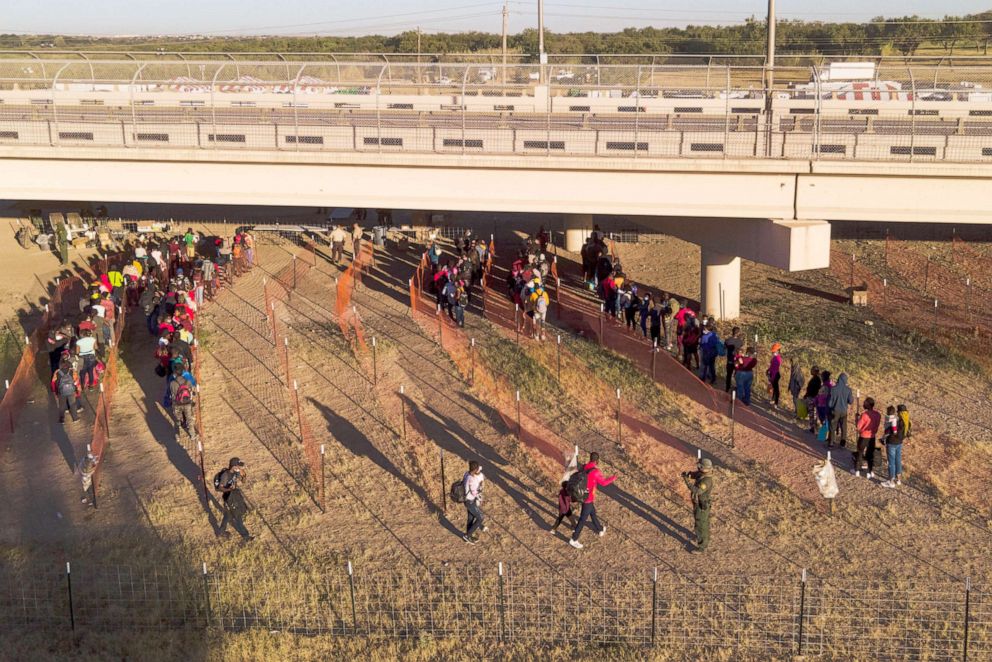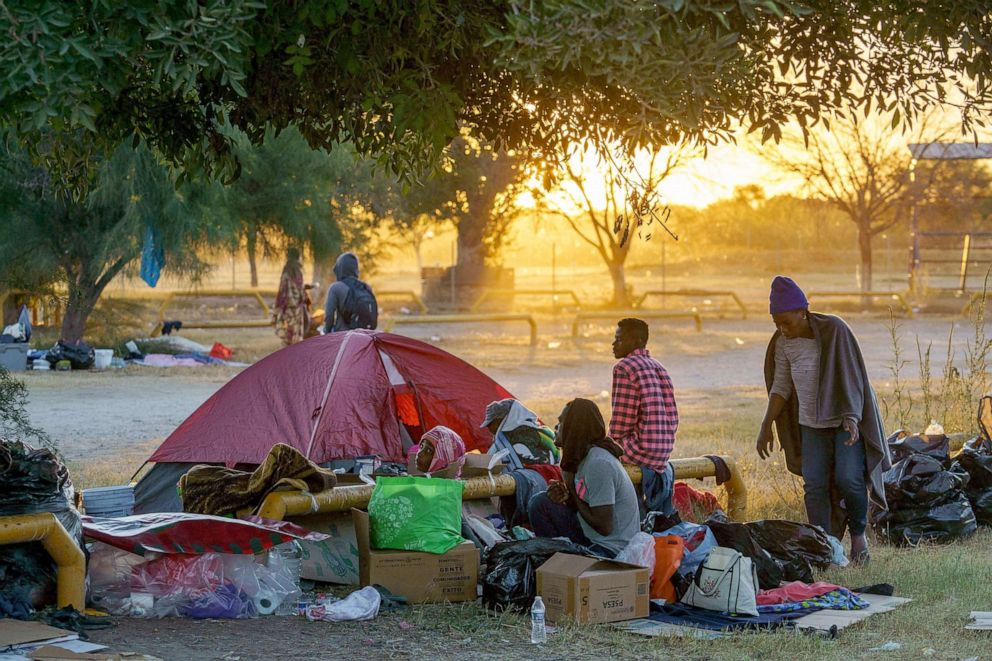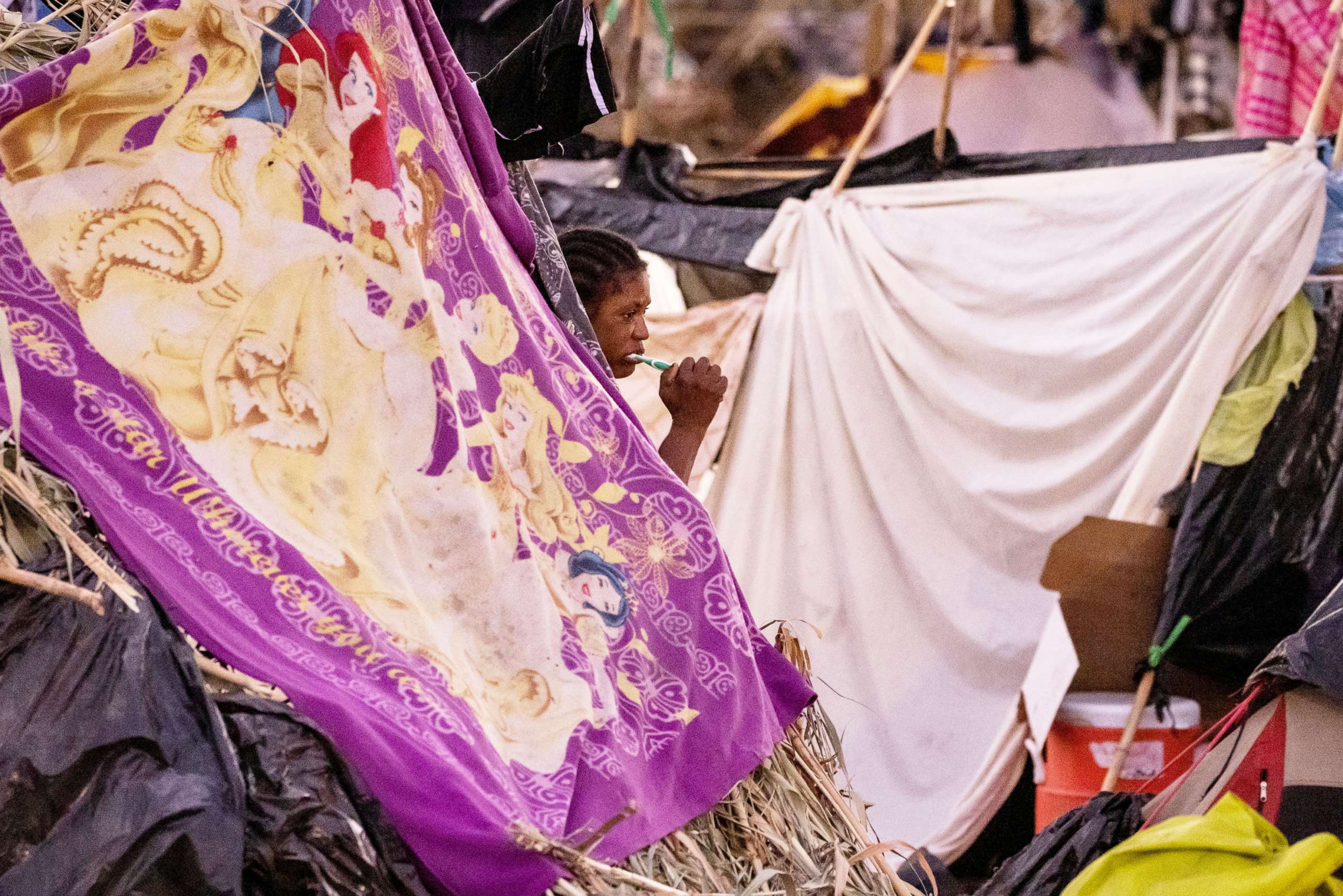Where are the Haitians ending up? Biden administration pressed for answers
Officials estimated that thousands have been released in the U.S.
The Biden administration continued to be pressed for answers Thursday over its handling of Haitian migrants who surged to Del Rio, Texas, this past week as more information comes out about where they are being sent now.
Among those questions are the outcomes for the migrants who have not been directly returned to Haiti. Multiple government officials told ABC News that they estimate the number of Haitians placed into removal proceedings and released in the U.S. -- with notices to report back to authorities -- is in the thousands. But the Department of Homeland Security has not provided an official count.

Officials said the department's data systems aren't set up for real-time reporting and that data reported by local Border Patrol units can change until it's finally tabulated -- that is why they have provided limited information about where the migrants are ending up.
"It can take a while for the data to settle in the system and for us to really understand what the numbers look like. That's a process of cleaning that can take a couple of weeks," one official said.
The DHS disclosed late Wednesday that more than 1,400 had been sent back on flights to Haiti in a series of flights this week. Department officials estimated that "several thousand" had returned to Mexico and about 4,000 remained at the Del Rio encampment.

White House press secretary Jen Psaki made clear at a briefing on Thursday that the migrants were being treated and processed just like any others who arrive illegally in the U.S.
"Our policy process has continued to be the same with Haiti as it is for anybody coming through in an irregular -- through a regular migration across our border," Psaki said.

Asked by ABC News about the types of detention alternatives used with the Haitian group, one DHS official described a combination of ankle monitors, cellphones with audio and facial recognition, as well as reporting over the phone.
"We seek to release all migrants with a notice to appear," the official said, referring to the court dates for those who aren't immediately expelled under public health orders.
The humanitarian aid organization for children UNICEF is estimating that more than two out of every three people sent back to Haiti from the southern border are women and children.
The organization, which is on the ground in Haiti providing relief to returned migrants, reported that many of the children are under the age of 10 and may have been born outside of Haiti.

The figures provided by UNICEF are an unofficial estimate of the removals UNICEF workers have observed so far. DHS has yet to release any information on the demographics of the population that was removed from Del Rio.
"Haiti is reeling from the triple tragedy of natural disasters, gang violence and the COVID-19 pandemic," Henrietta Fore, UNICEF executive director said in a statement Thursday. "When children and families are sent back without adequate protection, they find themselves even more vulnerable to violence, poverty and displacement -- factors that drove them to migrate in the first place."
DHS has also not provided full information on the makeup of the Del Rio camp. Officials on Thursday said about two-thirds of the group that gathered under the Del Rio bridge were part of families.
According to UNICEF, more than 40% of the Haitian migrants there at one point were children.
Additionally, about 2,300 state, local and federal personnel, including 150 medical professionals have been mobilized behind the humanitarian efforts. The Red Cross has provided more than 17,000 hygiene kits and World Central Kitchen has brought in more than 14,000 meals a day with other contributions coming from local volunteers.




